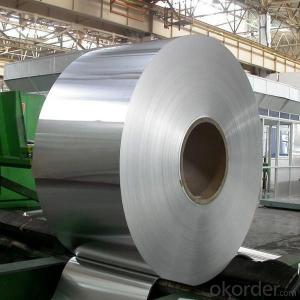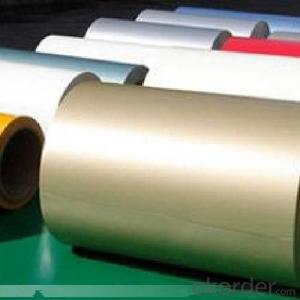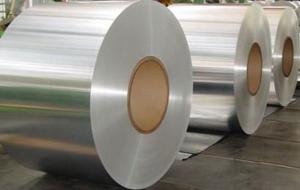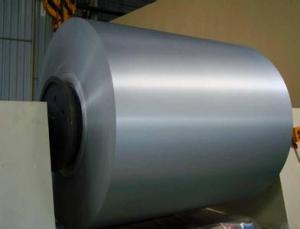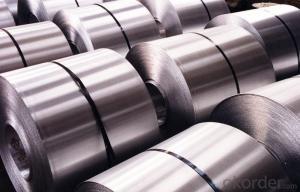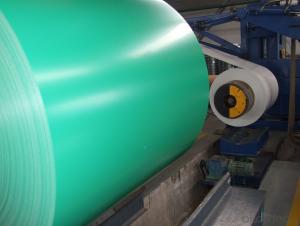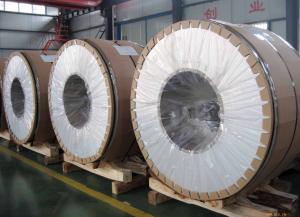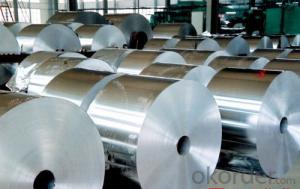Customized Anodized Aluminum Coil for Coating ACP Coil 1xxx 3xxx 5xxx
- Loading Port:
- Shanghai
- Payment Terms:
- TT OR LC
- Min Order Qty:
- 5 m.t.
- Supply Capability:
- 1000 m.t./month
OKorder Service Pledge
OKorder Financial Service
You Might Also Like
Specification
Aluminum Coil for Coating ACP Coil 1XXX 3XXX 5XXX
1.Structure of Aluminum Coil for Coating ACP Coil 1XXX 3XXX 5XXX
Aluminum Sheets are strengthened and cut from raw materials with different alloys, such as AA5005, AA5052, etc. They are easy for processing in different shapes, good in intensity and can be quickly installed. Aluminium Sheets for Energy Saving Curtain Walls are good in energy saving, weather resistance, fire resistance, easy for maintenance and with many colors.
Aluminium Sheets for Energy Saving Curtain Walls are widely used in construction of metal walls, metal ceilings, car decoration, advertizing panels, etc.
2.Main Features of Aluminum Coil for Coating ACP Coil 1XXX 3XXX 5XXX
•High intensity
•Easy to be processed and shaped
•Weather resistance
•Anti-pollution & environment protection
3. Aluminum Coil for Coating ACP Coil 1XXX 3XXX 5XXX Images
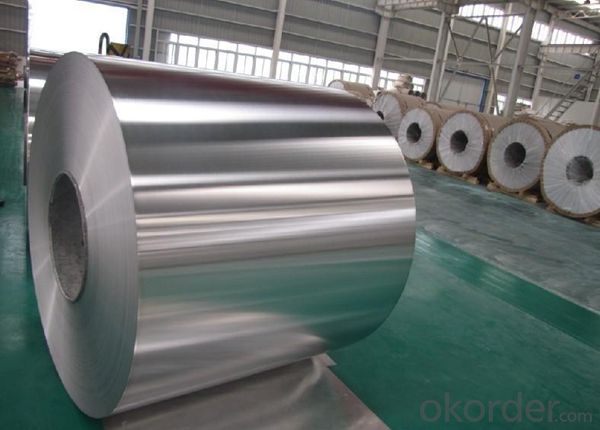
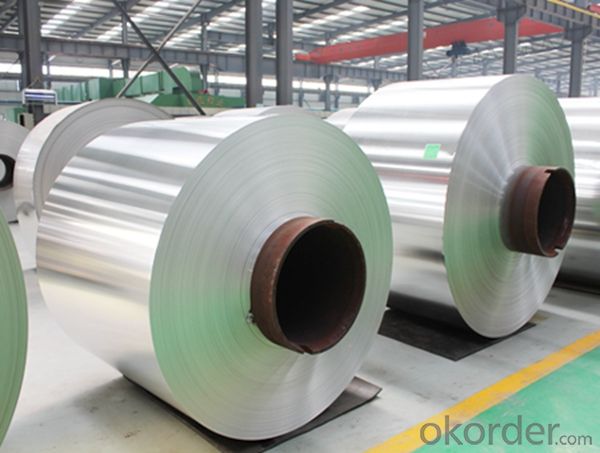
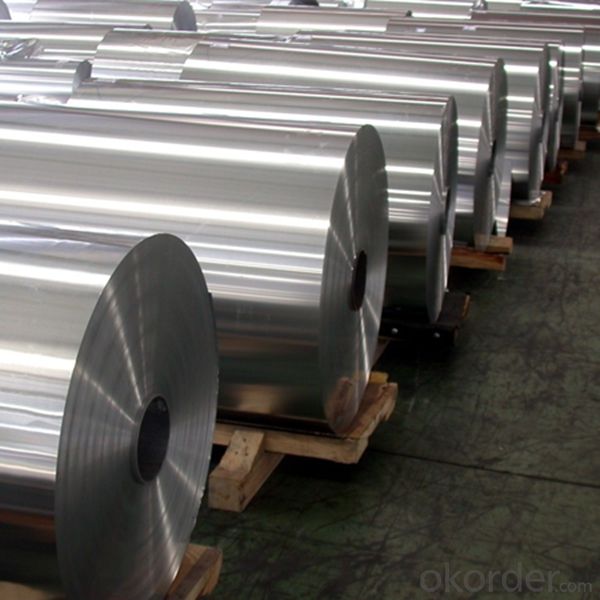
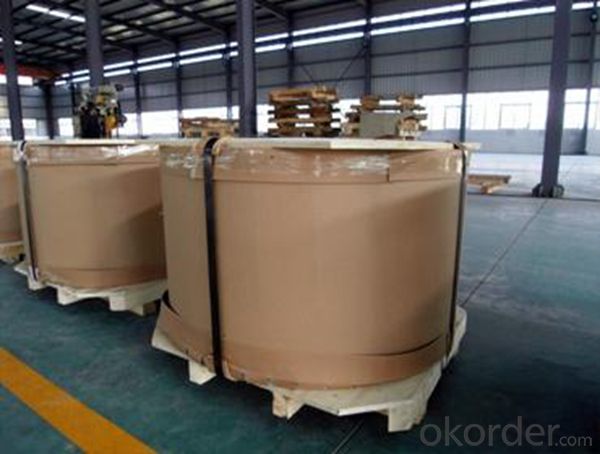
4.Specification of Aluminum Coil for Coating ACP Coil 1XXX 3XXX 5XXX
Alloy Number | AA5XXX 1XXX 3XXX |
Temper | H12, H14, H16, H18, H22, H24, H26, H32, HO, F |
Thickness | 0.1mm – 500mm |
Width | 10mm- 2200mm |
Standard | GB/T3880-2006, ASTM, ISO, EU standard |
5.FAQ of Aluminum Coil for Coating ACP Coil 1XXX 3XXX 5XXX
A.What about inspections to guarantee quality?
For each order for Aluminum Sheets with Mill Finished Surface AA5XXX, we will arrange strict inspection for raw materials, inspection during production and inspection for finished goods.
With requirement of customers, we also can arrange the third party inspection.
B.What about delivery?
We will put order for Aluminum Sheets with Mill Finished Surface AA5XXX in production schedule after order gets confirmed against copy of TT or L/C. Normally it takes about one month for production. Exact shipment schedule is different based on different sizes and quantity.
C.What is the MOQ?
5 tons for each size.
D. Where have you exported aluminium sheets?
We have exported aluminum sheets to many countries. Main markets include South East Asia, Middle East, North America, South America, etc.
- Q: What are the common surface cleaning methods for aluminum coils?
- There exist various effective surface cleaning techniques for aluminum coils, which can eradicate dirt, debris, and other impurities. Among the most frequently employed methods is pressure washing. This involves utilizing a high-pressure water spray to dislodge and eliminate any dirt or grime from the coil's surface. Pressure washing can be conducted using specialized equipment or simply a regular garden hose with a spray nozzle attachment. Chemical cleaning serves as another popular approach for cleansing aluminum coils. This method entails utilizing specific cleaning agents or solvents, specially formulated to break down and eradicate dirt and impurities from the coils' surface. These chemicals are typically applied using a spray bottle or a pump sprayer and then rinsed off with water after a designated period. Steam cleaning represents another effective technique for cleaning aluminum coils. This involves employing high-temperature steam to loosen and eliminate dirt and grime from the coil's surface. Steam cleaning is often used in conjunction with a cleaning agent or solvent to enhance its efficacy. In addition to these methods, there are specialized tools available, such as coil cleaning brushes or fin combs, which can be utilized to physically remove any debris or build-up from the coil surfaces. These tools prove particularly useful for eliminating smaller particles or debris that may be trapped in between the fins of the coils. It is essential to note that when cleaning aluminum coils, it is crucial to adhere to the manufacturer's recommendations and guidelines to ensure the cleaning process is conducted safely and effectively. Additionally, regular cleaning and maintenance of aluminum coils can promote their longevity and preserve their efficiency.
- Q: How to calculate the wall thickness with the gross weight of aluminum coil known?
- Gross weight*density=volume volume÷(aluminum sheet *width)=thickness
- Q: What are the unique considerations or safety measures to be aware of when using aluminum wire in welding?
- <p>When using aluminum wire in a welding process, special precautions include ensuring proper ventilation to avoid inhaling aluminum fumes, which can be harmful. Use the correct polarity and amperage settings on your welding machine, as aluminum requires direct current electrode negative (DCEN) for most processes. Clean the aluminum surface thoroughly to remove any oxides or contaminants that can affect the weld quality. Protect the aluminum from atmospheric contamination with a shielding gas, typically argon or a mixture, during the welding process. Be cautious of the high thermal conductivity of aluminum, which can lead to faster heat dissipation and may require adjustments in welding technique or parameters.</p>
- Q: Cost of aluminium coil coating fluorocarbon paint?
- Spraying area is the same as above. The warranty period is 7-8 years. This answer is not satisfactory, we can also call Run Hao fluorocarbon Materials Co., Ltd., we will give you a detailed answer.
- Q: Is it possible to use a metal detector to locate an aluminum coil?
- <p>Yes, you can use a metal detector to detect aluminum coils. Metal detectors are designed to detect various types of metal, including aluminum. While they are often used for detecting ferrous metals like iron, they can also pick up non-ferrous metals such as aluminum. The effectiveness of detecting aluminum may vary depending on the type of metal detector and its sensitivity settings. Ground conditions and the size and composition of the aluminum coil can also affect detection. It's important to adjust the metal detector to the appropriate settings for detecting non-ferrous metals to increase the chances of successful detection.</p>
- Q: How are aluminum coils used in the production of gutters and downspouts?
- Aluminum coils are used in the production of gutters and downspouts by being formed and shaped into the desired gutter or downspout profile. The coils are typically fed through a roll-forming machine that bends and molds the aluminum into the specific shape and size required. This process allows for the production of seamless gutters and downspouts, providing a more efficient and aesthetically pleasing solution for drainage systems.
- Q: What benefits does anodized aluminum offer when compared to regular aluminum coils?
- <p>Anodized aluminum coils offer several advantages over standard ones. They have enhanced corrosion resistance due to the protective oxide layer formed during the anodizing process. This layer also improves wear resistance and increases the coil's durability. Anodized coils can be easily colored, providing a wide range of aesthetic options without affecting the material's performance. Additionally, the anodized surface is more resistant to scratches and can maintain a polished appearance longer. Overall, anodized aluminum coils are more robust, visually appealing, and longer-lasting compared to standard aluminum coils.</p>
- Q: Can aluminum coils be used in the production of electrical transformers?
- The utilization of aluminum coils in the manufacturing of electrical transformers is possible. Aluminum, being a lightweight and cost-effective material, provides numerous advantages in transformer production. Traditionally, copper has been the preferred choice for transformer windings, but aluminum is gaining popularity due to its lower cost and weight. Aluminum coils possess good electrical conductivity and high thermal conductivity, essential for efficient transformer operation. Furthermore, the lighter weight of aluminum coils makes them easier to handle and install. However, it is crucial to acknowledge that aluminum coils necessitate larger cross-sectional areas compared to copper coils to achieve the same electrical conductivity. Additionally, additional measures may be required to counteract the effects of aluminum's higher coefficient of expansion, such as proper insulation and mechanical support. In conclusion, aluminum coils are a viable alternative to copper coils in certain applications, making them suitable for use in electrical transformer production.
- Q: What rules or laws govern the transportation of old or damaged aluminum coils?
- <p>Yes, there are regulations on the transportation of old or damaged aluminum coils. These regulations often fall under hazardous materials or waste transportation laws, depending on the condition of the coils. In the United States, the Department of Transportation (DOT) regulates the transportation of hazardous materials, which may include damaged aluminum coils if they pose a risk. The Environmental Protection Agency (EPA) also has guidelines for the transportation of waste materials. Internationally, the International Maritime Dangerous Goods (IMDG) Code and International Air Transport Association (IATA) Dangerous Goods Regulations provide guidance for the safe transport of such materials. Compliance with packaging, labeling, documentation, and handling requirements is crucial to ensure safety and avoid penalties.</p>
- Q: Are aluminum coils resistant to vibration?
- Yes, aluminum coils are generally resistant to vibration. Due to their inherent strength and elasticity, aluminum coils can withstand vibrations and oscillations without significant deformation or damage. This property makes them suitable for various applications that involve mechanical movement or exposure to vibrations.
Send your message to us
Customized Anodized Aluminum Coil for Coating ACP Coil 1xxx 3xxx 5xxx
- Loading Port:
- Shanghai
- Payment Terms:
- TT OR LC
- Min Order Qty:
- 5 m.t.
- Supply Capability:
- 1000 m.t./month
OKorder Service Pledge
OKorder Financial Service
Similar products
Hot products
Hot Searches
Related keywords
